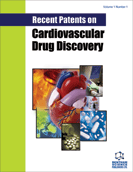Abstract
Atherothrombosis is an acute complication that develops on the surface of a ruptured atheromatous plaque or as a consequence of endothelial erosion that may cause myocardial infarction or ischemic stroke. Anti-platelet therapy has been highly effective at reducing atherothrombotic risk. However, patients continue to experience thrombotic events despite the use of agents such as aspirin and clopidogrel. Many of these events occur, in part, because of the inadequate response to these drugs. This has prompted the pursuit of novel agents with aspirations of optimizing anti-platelet therapy. New opportunities have emerged to address the deficiencies in current anti-platelet agents. Among these are thrombin receptor antagonists, such as SCH530348 and P2Y12 receptor antagonists, such as prasugrel, cangrelor, and AZD6140. The patents describe these novel compounds and compositions, their ability to inhibit platelet activation and/or aggregation and their use in the treatment of atherothrombotic diseases. These drugs have pharmacologic properties that translate into increased potency, more rapid onset of action, and less variability in response compared to standard therapy. In this review, we highlight the current data on these potential drugs and the role they could play in atherothrombotic disease.
Keywords: Atherothrombosis, platelets, anti-platelet pharmacotherapy, thrombin receptor antagonists, P2Y12 receptor antagonists
 5
5


